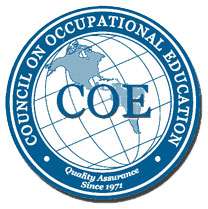There are 2.83 million nurses in the US, making up over half of all healthcare jobs. 2.83 million are RNs, and 690,038 are LVNs.
An LVN or licensed vocational nurse works with registered nurses and the rest of the healthcare staff. They can be called on to do almost anything as long as it helps the patient.
Read on to learn the duties of a vocational nurse and how to become one.
Vocational Nursing Duties
An LVN provides support for all aspects of medical care. This starts when a patient enters the facility and continues until they leave.
Bedside Care
An LVN provides bedside care for patients. This includes taking vital signs such as temperature, plus, and blood pressure. Other duties include helping them walk or eat, changing bandages on their wounds, or bathing them.
Seeing patients every day helps you notice any changes in their condition. Reporting these issues to the staff prevents them from getting worse.
Administering Medication
As an LVN, you can’t prescribe medication or diagnose a patient. YOu can administer medication, including:
- Oral drugs
- Injections
- Suppositories
- Topical medications
A vocational nurse is the first line of defense against a stubborn patient. Keep records and make sure necessary medications are administered.
Administrative Work
One of the most complex healthcare challenges today is managing patient data. Hospitals alone produce 50 petabytes of data annually (15 zeroes).
Being a vocational nurse puts you on the front lines of this battle. Work together with other hospital staff to:
- Maintain test results
- Record medications
- Write detail reports
Communication
An LVN needs to communicate with every other member of the hospital. This helps create a treatment plan for each patient.
An LVN must also communicate with the patients and their families to educate them on follow-up and preventative care. You may even be forced to deliver heartbreaking news.
Where You’ll Work
Vocational nursing is one of the most flexible healthcare jobs. You can perform necessary nursing roles in:
- Hospitals
- Nursing facilities
- Rehabilitation centers
- Long-term care facilities
- Clinics
Your nursing duties will differ depending on which of these facilities you work in. They’ll also change if you specialize in one of them or a specific area of healthcare, such as cardiology, pediatrics, or mental health.
Educational Requirements
Becoming an LVN means completing an approved year-long program and passing the NCLEX-PN exam. Depending on where you work, you may also need LVN certification, American Heart Association BLS certification, or IV certification.
Continuing education is necessary to maintain a license. Vocational nursing may be the best career path for you if you love working with patients and want to keep learning about how to care for them. The right education and specialization, along with a bit of networking, will help you advance quickly.
How to Become a Vocational Nurse
Being a vocational nurse is a fast-growing career. It’s in demand at various facilities and a way to advance up the healthcare career ladder.
Most of your day will be spent performing bedside patient care, from taking vital signs to administering medications. You’ll also communicate with them and their families and help the facility with administrative tasks.
Contact us about our vocational nurse program today.


